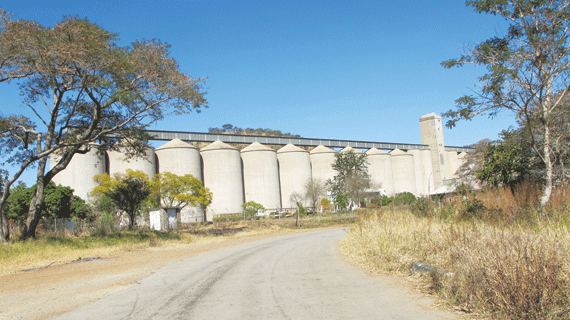
AGRICULTURE minister Joseph Made yesterday quashed claims by his deputy Paddy Zhanda that the State-run Grain Marketing Board (GMB) had no capacity to buy this year’s maize crop as its grain silos are in a sorry state. VENERANDA LANGA STAFF REPORTER
Made told journalists in Harare that Zhanda’s utterances in the National Assembly last week were erroneous, adding that the GMB had been tasked to continuously buy maize from farmers throughout the season.
He said Finance minister Patrick Chinamasa and the Agricultural Marketing Authority had been tasked by Cabinet to mobilise financial resources to pay farmers for maize including small grains.
“The GMB has been tasked by the government to buy maize as it relates to the strategic grain reserve which requires 500 000 metric tonnes annually, and I want to emphasise that the GMB is not a buyer of last resort,” he said.
“The GMB is tasked to buy grain at the beginning of the season and it buys continuously, which means farmers deliver grain throughout the season at the first instance by the farmer’s choice.”
He said anyone, including millers were also allowed to buy maize, but the government had already pegged the floor price for grain at $390 per metric tonne to protect farmers from being ripped off by private buyers.
Zhanda last week said: “GMB is a buyer of last resort and you do not have to sell your maize to GMB if there are people who can buy that maize.
“I am sure you are aware that there are some difficulties in terms of resources and therefore if you want to sell to GMB because GMB pays you better than any other buyer then you must also be prepared to wait in the queue.”
- Chamisa under fire over US$120K donation
- Mavhunga puts DeMbare into Chibuku quarterfinals
- Pension funds bet on Cabora Bassa oilfields
- Councils defy govt fire tender directive
Keep Reading
But Made said 5 400 metric tonnes had been delivered to GMB as compared to the previous 1 600 metric tonnes this time last season, adding the GMB will open satellite depots in rural areas.
He denied reports that most of the GMB silos were in a sorry state.
“GMB infrastructure is not in a sorry state. We have some infrastructure which has reached a stage where we need major repairs, but we cannot say it is a sorry state,” he said.
“Some of the infrastructure requires workings in terms of power and energy, but we have put up temporary structures using poles, tarpaulins and grain bags.”
GMB deputy general manager (operations) Lawrence Jasi said the country’s silos had a holding capacity of 800 000 metric tonnes.
“We have 12 cylindrical silos with a combined capacity of 750 000 metric tonnes,” he said.
“Closed shed concrete slab silos can carry 175 000 metric tonnes, and structures using poles and tarpaulins can store 3,9 million metric tonnes temporarily during the dry season.”
On cotton, Made said the yield this year in terms of hectarage was better, but warned farmers to harvest their crops to avoid damages by veld fires and rains.
On livestock, Made said in a week’s time the government will be announcing national strategies on livestock.
“We must focus on the livestock sector and re-enter the European market in terms of beef,” he said.
“There is a niche market that relates to our beef and we want to participate in that sector because we are GMO (genetically modified organisms) free.”
Made also said Cabinet position on GMOs was that they will not allow introduction of GMO materials, adding Zimbabwe was leading in developing GMO free seed.










